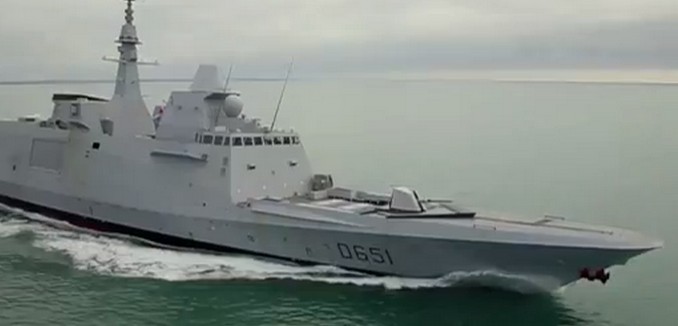Facing uncertainty in the near future due to the America rapprochement with Iran and growing disunity among members of the Gulf Cooperation Council (GCC), the Gulf kingdom of Qatar is upgrading its defensive capabilities, especially its naval assets.
At the recently concluded Doha International Maritime Defence Exhibition and Conference (Dimdex 2014), the government of Qatar made nearly $24 billion worth of arms deals. Among those deals was the purchase of 17 patrol boats from the Turkish manufacturer, Ares, to be delivered within the next 56 months.
DefenseNews reports that the patrol boats are part of a fleet expansion that is part of Qatar’s “greater National Security Shield project.” A navy is crucial to Qatar’s defense because the “total area of Qatar’s sea waters is about 35,000 square kilometers, three times its land area.” A Qatari defense official, Naval Staff Brig. Tariq Al Obaidli, further noted that “Qatar’s huge oil and gas reserves and its reliance on sea trade makes maritime defense of paramount importance to the country.”
In addition to expanding its fleet, Qatar is planning to complete a new naval base by 2017 to be “the center for Qatar’s maritime security.”
Despite its name, there is growing dissension within the GCC. Earlier this month, Saudi Arabia, the United Arab Emirates, and Bahrain withdrew their ambassadors from Qatar, reportedly over Qatar’s support of the Muslim Brotherhood.
But there are other areas of friction. Recently, Lee Smith observed in Tablet Magazine that with American disengagement from the Gulf, in favor of cozying up to Tehran, frictions inside the GCC are likely to increase because “its members simply can’t, or won’t, cohere without Washington’s steadying influence.” Smith notes, in particular, that Qatar is somewhat wary of Saudi Arabia, and might be hedging its bets by “playing both sides” by hosting CENTCOM, an important American installation, and simultaneously operating an natural gas field with Iran. In Confidence Game: Losing American Support, the Gulf States Scramble, appearing in the January, 2014, issue of Tower Magazine, Jonathan Spyer went further, writing “Qatar already appears to be moving away from the U.S. and toward Iran.”
While Qatar may be overtly friendlier to Iran that other members of the GCC, it still may be wary of its neighbor across the Persian Gulf. In 2010, Qatar Petroleum sought to build surveillance towers to guard its rigs. The company was concerned with attacks “by Iranians to either steal data, equipment or simply to machine-gun and destroy the platforms.” Recent upgrades to Iran’s submarine fleet suggest that Iran could threaten Qatar’s Gulf based economy.
With the growing uncertainty in the Gulf due to shifting alliances, and surrounded by powerful neighbors, Qatar appears to be looking to strengthen itself against possible subversion and economic disruptions.
[Photo: DefenseWebTV / YouTube ]




